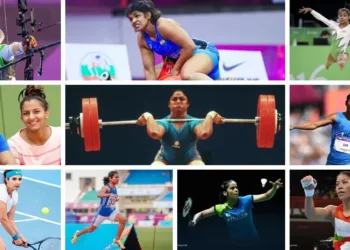India has achieved a major milestone in sustainable transportation with the successful testing of its first hydrogen-powered train coach at the Integral Coach Factory (ICF) in Chennai. This breakthrough positions India among the global leaders in eco-friendly rail technology and marks a significant step toward carbon-neutral public transport.
Table of Contents
Historic Achievement at ICF Chennai
Railway Minister Ashwini Vaishnaw announced on Friday that India is developing a 1,200 HP hydrogen train, which will place the country among leaders in hydrogen-powered train technology. The successful test represents years of research and development by Indian Railways to reduce carbon emissions and embrace cleaner energy alternatives.
The testing took place at Chennai’s Integral Coach Factory, one of India’s premier rail manufacturing facilities, demonstrating the country’s growing capabilities in advanced transportation technology.

Key Features and Specifications
| Specification | Details |
|---|---|
| Power Output | 1,200 HP (Horsepower) |
| Test Location | Integral Coach Factory (ICF), Chennai |
| Coach Type | Driving Power Car |
| Technology | Hydrogen Fuel Cell |
| Environmental Impact | Zero Carbon Emissions |
| Global Position | Among world leaders in hydrogen train tech |
Why Hydrogen Trains Matter for India’s Future
Hydrogen-powered trains represent a revolutionary shift from diesel-dependent rail transport. Unlike traditional trains that burn fossil fuels, hydrogen trains produce only water vapor as a byproduct, making them completely emission-free during operation.
For a country like India, where railways carry over 8 billion passengers annually, this technology could dramatically reduce transportation-related carbon emissions. The Indian Railways network spans over 68,000 kilometers, making it one of the world’s largest rail networks – and potentially one of the cleanest with hydrogen technology adoption.
Global Context and Competition
India joins an elite group of nations developing hydrogen rail technology. Germany pioneered commercial hydrogen trains with the Coradia iLint, while countries like Japan and South Korea have also invested heavily in this technology. China and several European nations are rapidly expanding their hydrogen rail fleets.
This development aligns with India’s commitment to achieving net-zero emissions by 2070 and supports the government’s National Hydrogen Mission, which aims to make India a global hydrogen hub.
Technical Innovation and Future Plans
The hydrogen train technology uses fuel cells that convert hydrogen and oxygen into electricity, powering electric motors that drive the train. This process is highly efficient and produces zero harmful emissions, addressing both environmental concerns and energy security.

Recent testing has revealed technical challenges that may push the full launch to mid-2025, as engineers work to increase hydrogen fuel cell capacity to support the train’s complete operational requirements.
Environmental and Economic Benefits
Environmental Impact:
- Zero carbon emissions during operation
- Reduced air pollution in urban areas
- Lower noise pollution compared to diesel trains
- Supports India’s climate change commitments
Economic Advantages:
- Reduced dependence on imported diesel fuel
- Lower long-term operational costs
- Job creation in green technology sectors
- Enhanced energy security through domestic hydrogen production
What’s Next for Indian Railways?
The successful test marks the beginning of a broader transformation in Indian rail transport. Plans include expanding hydrogen train deployment across various routes, particularly in environmentally sensitive areas and heritage lines like the proposed Kalka-Shimla route.
This technology development also supports India’s broader goals of becoming a manufacturing hub for clean transportation solutions, potentially creating export opportunities for hydrogen trains and related technology to other developing nations.
Conclusion
India’s successful hydrogen train test represents more than just technological achievement – it’s a bold step toward sustainable transportation that could inspire similar innovations across the developing world. As the country continues refining this technology, we’re witnessing the dawn of a new era in clean, efficient public transport.
The success at ICF Chennai proves that India is not just adopting green technology but actively innovating in the space. For travelers and environmental advocates alike, this development offers hope for a cleaner, more sustainable future in rail transportation.
For more updates on India’s technological innovations, visit our technology section and sustainability coverage.
Frequently Asked Questions
Q: When will hydrogen trains be available for passenger service in India? A: While the initial coach has been successfully tested, full passenger service may begin by mid-2025. The trains are expected to first operate on heritage routes like Kalka-Shimla before expanding to other networks.
Q: How do hydrogen trains compare to electric trains in terms of environmental impact? A: Both are environmentally friendly, but hydrogen trains have an advantage on non-electrified routes as they don’t require extensive electrical infrastructure. They produce zero emissions at the point of use, while electric trains’ environmental impact depends on the source of electricity generation.








